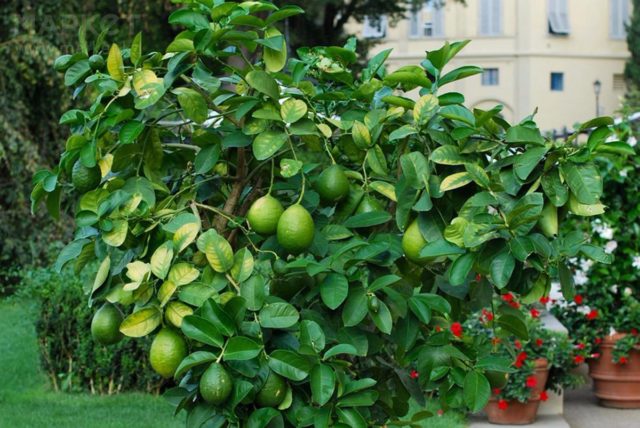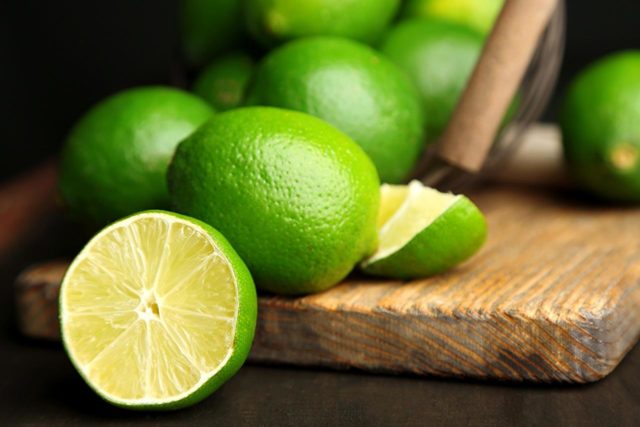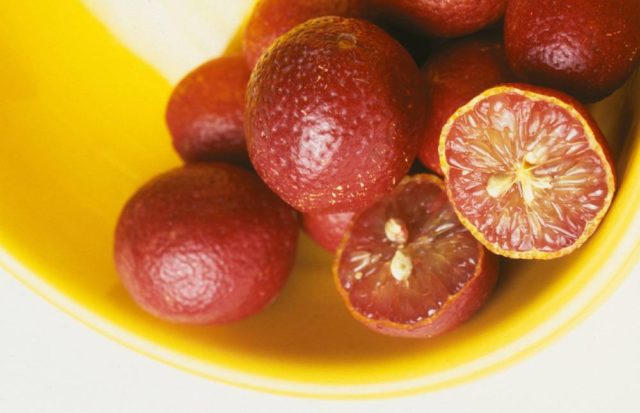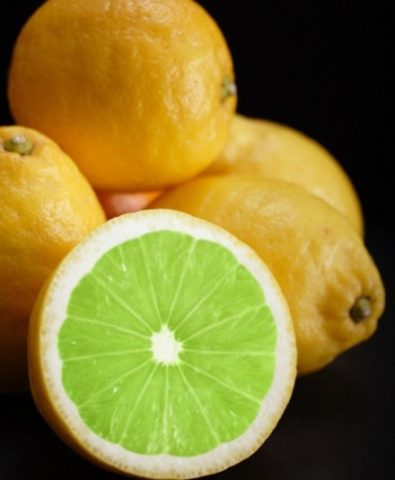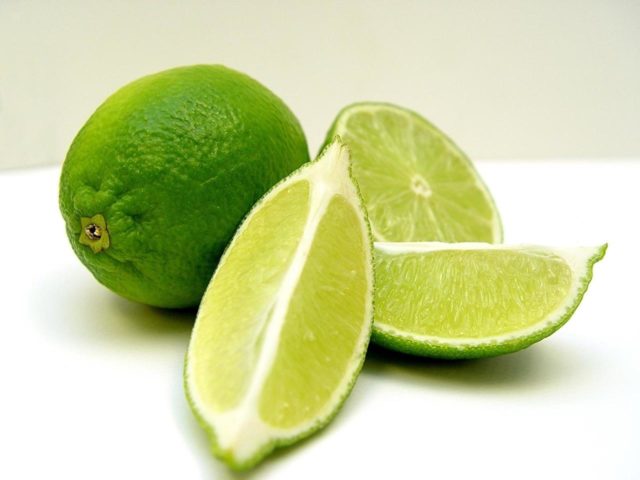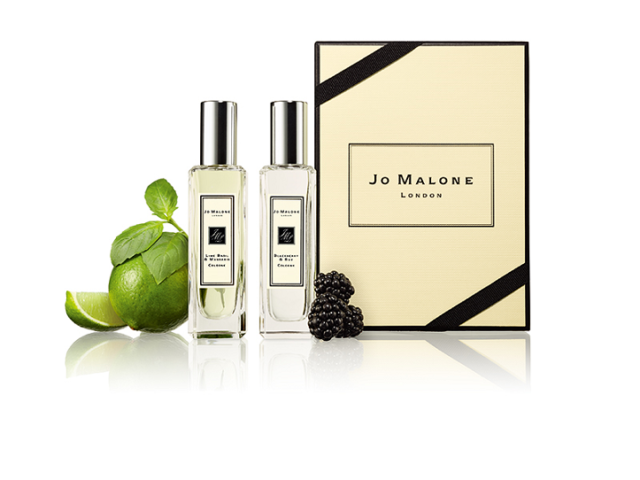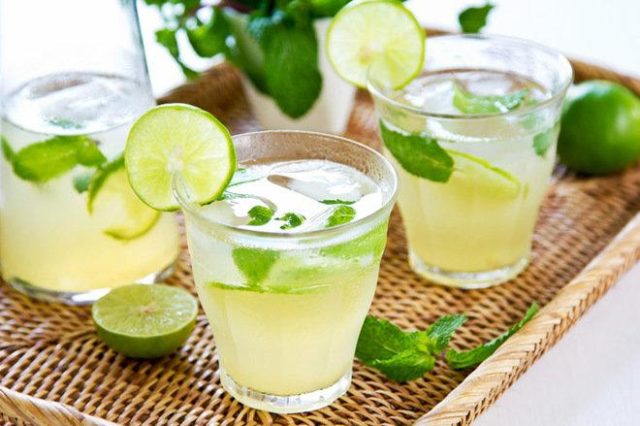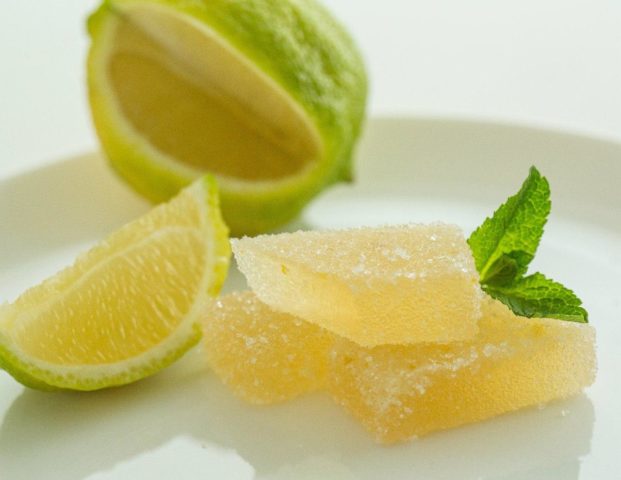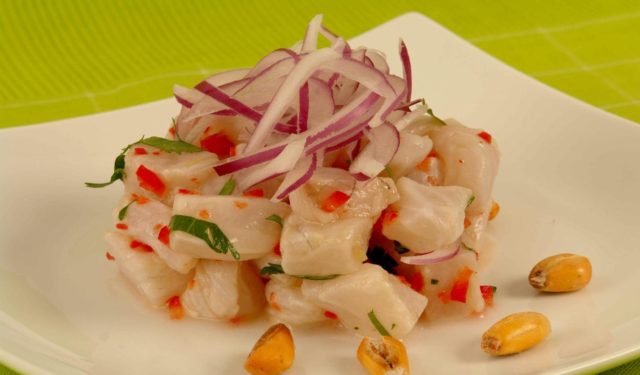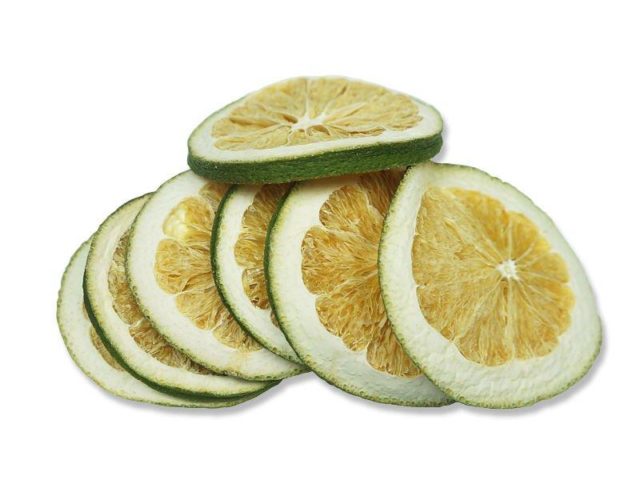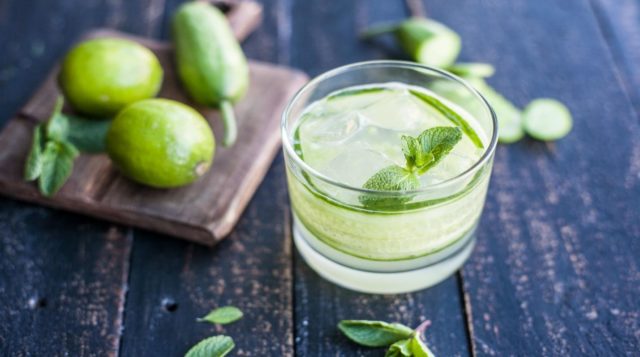Content
- 1 Lime is a fruit or vegetable
- 2 What does lime look like
- 3 What lime tastes like
- 4 The chemical composition of lime
- 5 Why lime is good for the body
- 6 Contraindications to the use of lime
- 7 How to choose a lime
- 8 How to eat lime fruit
- 9 Can you eat lime peel
- 10 What you can eat lime with
- 11 What can be done with lime
- 12 Calorie content of lime
- 13 How to store lime at home
- 14 Conclusion
- 15 Reviews of lime for weight loss
Citrus fruits are in demand all over the world. They are appreciated for their taste and useful properties. Among the variety of these crops, lemons and limes are the most popular. The beneficial properties of the lime fruit depend on its composition and degree of ripeness.
Lime is a fruit or vegetable
Lime belongs to the Rutaceae family, genetically this fruit is similar to lemon, but has distinctive features in several ways.
Limes are used for desserts, baking, marinating meat and poultry. Because of its use as an additive to main courses, citrus is sometimes called a vegetable. This opinion is supported by the use of lime to prepare guacomole, a classic Mexican sauce for the main course. The fruit goes well with seafood and is one of the must-haves in Asian soup.
Despite these characteristics, limes are classified as fruits. A fruit is any fruit of a tree that is juicy. This is not a botanical term, but a concept that is used in an economic sense. Limes are citrus fruits of fruit trees.
The confusion about lime designations may be related to the etymology of the word. Until the 19th century. all fruits were called vegetables, the word “fruit” simply did not exist. The situation changed over time, when information became available, the level of education increased.
What does lime look like
Lime grows on a low lime tree with branches forming a dense crown of dark green leaves. The leaves are covered with a light waxy coating, thorns form in their axils, which often interfere with the manual collection of fruits.
Lime trees love a tropical climate with moist soil and moist air. Their homeland is considered a large peninsula in East Asia. The most extensive lime plantations are located in India, Sri Lanka, Brazil, Mexico.
Citrus is one of the remontant crops, that is, it has the ability to bloom and bear fruit many times. Flowers are formed on the axils of leaf plates, one inflorescence can form from 1 to 7 single flowers of white and pale cream shade. The peculiarity of culture lies in the ability to bear fruit throughout the year. However, the main harvest occurs during the period when the rainy season begins to come to an end.
Description of fruits:
- size: from 3 to 6.5 cm;
- weight: 50 to 200 g;
- shape: oval, ovoid;
- color: the peel has a light green saturated shade;
- pulp: a shade lighter than the color of the peel, the pulp of the fruit is juicy, contains oblong seeds.
What lime tastes like
The taste of the fruit sets it apart from its closest relative, the lemon. Lime is characterized by the familiar citrus sourness, but there is a bitterness that makes it especially combined with seafood.
There are hybrid lime varieties that have been bred by breeding.
Bloody lime, which grows in Australia, has a sweet and sour taste and is mainly used for preparing cocktail drinks.
Limonime is a light yellow hybrid with a low content of ascorbic acid.Sweet limes are specially bred fruits that have a reduced vitamin C content but an increased sucrose content.
The chemical composition of lime
You can talk about the health benefits and dangers of lime after analyzing its composition. The small fruit is rich in nutrients that can be divided into major groups.
Vitamins | Trace elements | Macronutrients | Amino acids |
Vitamin A | Iron | Potassium | Lysine |
Beta carotene | Manganese | Calcium | Methionine |
Vitamin C | Selenium | Magnesium | Tryptophan |
Vitamin K | Zinc | Sodium |
|
Folic acid | Copper | Phosphorus |
|
In addition, citrus pulp contains palmitic and stearic saturated acids, as well as fatty linoleic and oleic acids. Pulp fibers contain fiber, water and sucrose.
Why lime is good for the body
The main beneficial properties of the fruit are determined by its composition:
- Ascorbic acid with potassium increases the elasticity of blood vessels, which has a positive effect on the activity of the heart muscle, contributes to the normalization of blood flow.
- Macronutrients are responsible for the additional production of collagen, which the body needs as a blocker of the aging process.
- The vitamin-mineral complex stabilizes the activity of the defenses, increases the indicators of immunity, and helps to cope with inflammation and infections.
- The content of fiber, vitamins and essential oils has a beneficial effect on the digestive processes, increases the ability to absorb nutrients and remove harmful substances.
- Substances that function as antioxidants are involved in the normalization of vision.
- Glycoside and flavonoids are considered prophylactic agents in the fight against predisposition to cancer.
- Essential oils have a calming effect: gently affecting the nervous system, relieve irritability symptoms.
- The micronutrients contained in the pulp help to improve overall well-being.
The health benefits of lime are directly related to the way it is prepared. The fruit is suitable as an additive to drinks, meals, and daily juice intake. It is prescribed for the treatment of scurvy, a disease associated with a lack of iron.
In addition, the fruit is used as an external remedy. Squeezed fresh lime juice is used as the basis for compresses, lotions or cosmetics with a therapeutic effect are prepared with its help.
The benefits of lime for women
The effects on the woman's body are based on some of the characteristics of the fruit:
- ascorbic acid and potassium have an effective effect on the condition of the veins, therefore, women who include lime in their diet do not suffer from varicose veins;
- the components of the composition are also able to improve hormonal levels, which is especially noticeable during the period of premenstrual syndrome, as well as after the onset of menopause;
- B vitamins actively affect nail strengthening, facial skin condition and hair growth;
- amino acids support metabolic processes, which contributes to faster burning of excess calories: this mechanism is especially important for women who are concerned about maintaining their slimness;
- flavonoids and essential oils of citrus help stimulate the production of collagen, which moisturizes the skin, leaving it radiant and toned;
- as a component of external products, lime is prized by women for its properties to whiten the skin and eliminate age spots.
Lime aroma is often the basis of aromas. On its basis, they create a perfume with refreshing notes, as well as make aroma candles and massage oils. Essential oils have a beneficial effect on overall well-being.
The benefits of lime for men
Citrus fruit is useful for men during periods of emotional stress and work stress. Essential oils promote relaxation.In addition, the components of the composition normalize the full functioning of the reproductive system. This effect becomes possible with the regular use of water with lime, juice diluted with liquid, or pulp without heat treatment.
Benefits of lime for kids
Lime as a fruit often attracts young children, but its sour taste is not always pleasant. It begins to be introduced into the children's diet in the absence of pediatric indications from 3 to 4 years. In this case, the juice is diluted with water, the pulp is sprinkled with sugar. It is a natural source of vitamin C for a child's body. In addition, it contains the daily requirement of vitamin D, which is important for children throughout the period of growth of bones and teeth.
Contraindications to the use of lime
The beneficial properties of lime, its relevance as a fruit or an additional ingredient in modern dishes, can result in health problems if consumed regardless of restrictions.
Lime will not do any good:
- for those who suffer from stomach diseases associated with high acidity, amino acids and ascorbic acid in the fruit act irritatingly on the walls of the stomach, which, in turn, leads to excessive secretion of gastric juice;
- persons prone to allergic reactions to citrus fruits: this fruit can cause one of the most difficult and common forms of allergies;
- people with hypersensitivity of the gums or damaged tooth enamel.
How to choose a lime
When taking a fruit, the degree of ripeness, as well as the condition of the peel and pulp, matters. In temperate to continental temperate countries, limes can be found in supermarkets or fruit and vegetable stores.
We have to choose the appropriate instances from what exporters represent. During transportation, limes usually ripen on the road and reach the consumer when they are moderately ripe, but due to violation of the rules of transportation or storage, the fruit can easily deteriorate. To get the most out of your lime, you need to choose the right fruit. This can be determined by external signs:
- the peel should be even, without cracks, punctures;
- there should be no dry, white or black spots on the surface of the lime;
- with light pressure, the fruit should be firm, but not soft;
- ripe lime emanates a subtle citrus aroma, while unripe fruit does not smell at all.
If the fruit was purchased slightly unripe, you can put it on the shelf and wait until it is fully ripe. To speed up the process, you can put yellow bananas next to the lime. They release ethylene, which helps to soften the tissues of the fruit and more active ripening of its fibers.
How to eat lime fruit
To get the most out of your lime, there are a few guidelines to follow when preparing it:
- lime is not subjected to heat treatment, which can destroy the structure and deprive the fruit of its beneficial properties;
- to season the dish or enhance its aromas, lime is added last;
- freshly squeezed juice is not drunk in concentrated form, it is diluted with water in different proportions.
The fruit is not recommended to be consumed on an empty stomach, although this rule does not apply to lime water, which has beneficial properties.
Before going to bed, you should not get carried away with tea with lime, so as not to provoke a diuretic effect, although chamomile drink with a slice of lime will have a calming effect.
The basic rule when eating lime is to monitor compliance with the permissible fruit rate.
Can you eat lime peel
Lime peel is thinner than lemon peel. It contains nutrients, and although the taste can be bitter, it can be eaten. The rind is usually eaten with the pulp or the zest is used.
Lime zest can be stored in the refrigerator for several months and used as needed.
What you can eat lime with
Lime is a versatile citrus fruit that can be added to drinks, desserts, and main courses.
Examples of using lime pulp, juice or zest:
- citrus-based sauces for baked fish, grilled steaks;
- adding juice and pulp to seafood soups;
- pastries with pulp, zest and juice (classic lime pie made from shortcrust pastry);
- preparation of drinks (mojito, lemonade, may-tai cocktail);
- segments can be ingredients in fruit and vegetable salads;
- zest and juice are used for salad dressings and marinades.
What can be done with lime
To properly cook lime and enjoy the aroma and taste of citrus, it is not deeply cooked. Lime marmalade is made on the basis of agar-agar. For this, segments and freshly squeezed fruit juice are used.
Lime can be frozen by cutting it into wedges. After thawing, the beneficial properties of the fruit will remain the same. Freshly squeezed juice is also stored in the freezer, after defrosting it becomes less concentrated. Many housewives freeze juice in ice containers. This method allows you to use lime juice in portions and keep it for 5 - 6 months, in terms of benefits, it is not inferior to freshly squeezed. The zest is stored on the bottom shelf of the refrigerator for 2 - 3 months. Used to prepare meals as needed. If you divide the pulp into segments and pour it over with warm jelly, you get a luxurious dessert popular in France.
Juice is the main ingredient in ceviche marinades. This is a traditional Peruvian dish where sea fish fillets are poured with lime juice and aged until cooked. The fruit is also popular in the preparation of carpacho, while lime is used more often than lemon - because of the peculiarity of its taste and properties. The juice is added to the classic curry, mixed with pepper and other spices.
These options relate to culinary use, but, in addition, the peel, juice and pulp are successfully used in home cosmetology, folk medicine.
The juice is added to the nourishing cream, on the basis of which face masks are made. Crusts insist and drink 2 - 3 tbsp. l. daily. This recipe is able to cure dysbiosis. Tinctures also help relieve inflammation with systematic rubbing of a sore spot. Juice dressings can help relieve irritation and itching symptoms on your hands.
Calorie content of lime
Because of its calorie metrics, lime has a lot of benefits for weight loss. The pulp of one medium-sized lime contains only 16 kcal. This means that with a unique composition of vitamins, lime is not able to affect the deposition of excess carbohydrates. This is used by modern nutritionists when drawing up programs for weight loss. Citrus is readily included in the diet not only as a means of stabilizing metabolic processes, but also as an ingredient that improves the taste of dishes.
Dried lime has a caloric value of 36 kcal.
Drinking lime water in the morning, when it is low in calories, starts up the body's systems, benefits the absorption of nutrients during breakfast and minimizes harm by eliminating toxins.
How to store lime at home
The fruit has a thin skin, this is one of its features. During transportation, part of the crop is damaged. When buying, you need to choose a whole even fruit, then it can be stored at home for a long time.
- Ripe fruits are stored at room temperature for no more than 7 days. After that, the lime skin can become covered with dry blotches and become flabby. Such fruit will wrinkle under the blade of a knife when slicing and will not add freshness to cooked dishes.
- On the lower shelf of the refrigerator at a temperature of +4 ° C, the fruit will remain for about 3 weeks, while it will partially lose its aroma, but the beneficial properties will remain unchanged.
- On the territory of a darkened room with an air humidity of 85% and a temperature of about +6 - 8 ° C, the fruits will retain their qualities from 3 to 5 weeks.
- On the shelf of the freezer, segments, zest or juice will last up to 6 months, while they will slightly lose their presentable appearance when defrosting, but they will not lose their useful properties.
The fruits, cut in half, are stored in the refrigerator, while the halves are connected to each other and covered with a mug or wrapped in cling film. After 4 - 5 days, the pulp will begin to dry out, and then it will be covered with mold.
Conclusion
The beneficial properties of the lime fruit are manifold. The fruit has unique flavor characteristics, and parts of the fruit are added to prepared meals and drinks. In addition, citrus has a beneficial effect on the body and, if used correctly, can strengthen the nervous system and get rid of the signs of a cold.
Reviews of lime for weight loss
